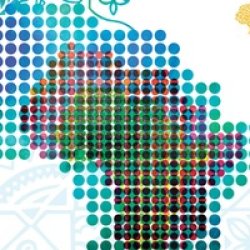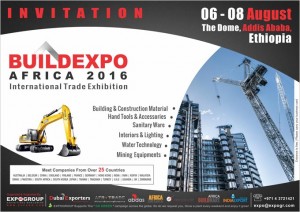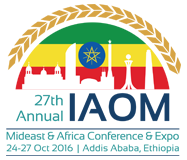Ethiopia Technology & Manufacturing Expo is a 5 day event being held from 30th June to the 4th July 2016 in Addis Ababa, Ethiopia.This event showcases products like Industrial, Technology, Manufacturing products, machinery & after sales services etc. in the Industrial Products, Manufacturing, Fabrication, Repair & Maintenance industries.

From ‘tragedy’ to ‘African Renaissance’ to reality: what are the most important features of African economies and the continent as a whole? Carlos Lopes discusses demography, land mass, the blue economy, migration, and more within Africa and globally, to give a better, clearer idea of Africa’s place in the world. The talk will be followed by drinks reception. For more information please email: cas@soas.ac.uk

Buildexpo Africa is the only show with the widest range of the latest technology in construction machinery, building material machines, mining machines, construction vehicles and construction equipment. After 18 successful editions of Buildexpo in Kenya and Tanzania, East Africa’s largest building and construction fair now ventures into the Ethiopian market. The first edition of Buildexpo in Ethiopia will provide international business platform by enabling global investment opportunities.
Ethiopia has one of the fastest growing economies in the world. The country has been registering a double digit growth for the last twelve consecutive years. Located in the region of the Horn of Africa, Ethiopia is the 2nd most populated country in Africa. Ethiopia’s construction sector has outgrown that of its neighbors. The construction sector will grow at an annual average growth of 18.6% and will be fueled by a swell in infrastructure investments in the region. Ethiopia has also several agreements that grant duty free access to many countries, including European countries and the USA. Business friendly climate, duty free access and competitive labour costs have successfully created new investments and employment opportunities. Ethiopia is also a member of COMESA which has an access to 20 African countries.
Buildexpo will bring you exhibitors from over 28 countries who are the finest in infrastructure development, with over hundreds of products, equipment and machinery on display.
Come, be a part of progress in Africa!

The 5th International Conference of AAAE will take place in Addis Ababa, Ethiopia from 23 – 26 September 2016 under the theme “Transforming Smallholder Agriculture in Africa: The Role of Policy and Governance”. The choice of theme has been motivated by the fact that the renewed efforts by most African governments in recent times to commit to supporting agriculture in order to reduce poverty and increase wealth among smallholder farmers are being hindered by a number of challenges not least how effectively to implement sound evidence-based policy reforms within vibrant complex political economies. African governments are aware of the evidence suggesting that GDP growth originating in agriculture is about four times more effective in reducing poverty than GDP growth of other sectors hence their efforts to forge agricultural transformation.
The conference will attract the participation of agricultural economists from academia, industry, government, non-governmental organizations, and the farming communities. These are people who drive policy prescriptions and implementation in their various countries. Many of the African countries to be represented at this conference subscribe to the Comprehensive Africa Agriculture Development Programme (CAADP), whose overall goal is to eliminate hunger and reduce poverty through agricultural transformation. The countries, in their development blueprints have adopted the four CAADP pillars which include extending the area under sustainable land management, improving rural infrastructure and trade-related capacities for market access, increasing food supply and reducing hunger, and increasing spending on agricultural research, technology dissemination and adoption.
The conference is expected to attract about 450 – 500 delegates from around the world.
The Ethiopian Christian culture dates back to the emergence of Christianity and continues vibrantly today. This long tradition makes Ethiopia a unique place to visit and study. Our seminar focuses on Ethiopian Christianity and its connections with the Eastern Mediterranean in Antiquity and the Middle Ages. The theme includes the early reception of Christianity in Ethiopia, the emergence of a Christian state, and the development of the distinct Ethiopian Church. We explore the relations between Ethiopia and the Roman Empire, Persia, Egypt and Palestine up to the Crusades, and discuss distinct Ethiopian traditions in connection with Judaism and Islam. We will visit the late antique city of Aksum and the world-famous rock-hewn churches in Lalibela, as well as number of ancient monasteries, participate at a pilgrimage and meet with students and professors at two Ethiopian universities.
The seminar gives an exceptional opportunity to get to know Ethiopian Christianity which is an often neglected field of study in Nordic universities, despite the fact that several important early Jewish and Christian texts are only preserved in Ge’ez, the ancient Ethiopian language. We pay special attention to the diverse cultural manifestations of religion, including archaeology, art history, architecture, music and literature, theology and Church practices, general history, trade and international relations. The participants are invited to study texts in their traditional contexts and as part of the wider material culture.
Our seminar is the second of a number of Nordic PhD-seminars arranged by the Nordic Network for the Study of Judaism, Christianity and Islam in the First Millennium (NNJCI), a network of PhD students and faculty from Nordic academic institutions. For more, see http://nnjci.mf.no/.
Structure of the seminar
The duration of the seminar will be two weeks. The program covers several major sites in Ethiopia. In addition to excursions, there will be lectures given by experts on various topics. Each participant is also required to prepare a short presentation (ca. 20 minutes) on a related topic based on reading of relevant materials (see the list of reading below). The student may present either his/her own PhD project or a paper on a theme connected to the program.
Practical information
Participants: The number of participants is restricted to 12 students (and three teachers). The seminar is for PhD-students, but it will also be open for advanced master’s students and postdoctoral researchers if the available places are not filled by PhD-students.
Cost: The cost for the course is 9.000:- SEK excl. international air fare. This includes all domestic transport, half-board accommodation, all entrances, guide, lectures, materials. Travel to Ethiopia must be with Ethiopian Airlines in order to have substantial reduction in domestic fares. The flights from Stockholm to Addis Abeba should not be more than 5000 SEK if booked early. All participants are themselves responsible for booking the international flights (including their way to Stockholm.)
Reading list: All participants should prepare for the seminar by reading approximately 300 pages. The reading list will be distributed before September 1st.
Credits: The seminar equals 5 ECTS, but participants are themselves responsible for having these credits accepted by their doctoral program.
Organizers: Lund University (Samuel Rubenson, Mengistu Gobezie) and University of Helsinki (Outi Lehtipuu, Anna-Liisa Tolonen, in co-operation with the Finnish Institute in the Middle East).
Information: Follow our facebook-page (https://www.facebook.com/groups/1625904417675426/) or contact Samuel Rubenson (Samuel.Rubenson@teol.lu.se) or Outi Lehtipu (outi.lehtipuu@helsinki.fi).
Application
Applications should be sent to Outi Lehtipu (outi.lehtipuu@helsinki.fi) before April 15th 2016.
Accepted applicants will be informed by May 10th, and be asked to pay a deposit of 4500 SEK by June 1st.
Click here for the application form.

The International Association of Operative Millers is an international organization comprised of flour millers, cereal grain and seed processors and allied trades representatives and companies devoted to the advancement of technology in the flour milling, cereal grain and seed processing industries.
Founded in 1896, the International Association of Operative Millers (IAOM) is an international organization comprised of grain millers and allied trades representatives devoted to the advancement of education and training opportunities in the grain milling industries.
Among its members, IAOM promotes a spirit of fellowship and cooperation, enhances their proficiency, and advances their interests in industry activities. With 15 districts around the world, the IAOM provides an international forum for networking; the exchange of ideas, technical and educational opportunities; and the discovery of new products and services.
IAOM provides an international forum for networking, the exchange of ideas, technical and educational opportunities, and the discovery of new products and services.
 The Ethiopian Chamber of Commerce and Sectoral Associations (ECCSA) is organizing the 9th Ethio-Chamber Interna¬tional Trade Fair from Nov. 09 – 13, 2016 at Addis Ababa Exhibition Center & Market Development Enterprise.
The Ethiopian Chamber of Commerce and Sectoral Associations (ECCSA) is organizing the 9th Ethio-Chamber Interna¬tional Trade Fair from Nov. 09 – 13, 2016 at Addis Ababa Exhibition Center & Market Development Enterprise.
The overall objective is to contribute to the development of competitive industry and business sector mainly through the promotion of products and services.

The theme for the 2016 African Economic Conference (AEC) is “Feeding Africa: Towards Agro-Allied Industrialization for Inclusive Growth”. This theme is timely and in line with the current African and international development agenda. Ending poverty and overcoming hunger and food insecurity permanently come first and second, respectively, in the Sustainable Development Goals (SDGs) endorsed in September 2015 by UN member States. This commitment is also stressed by the African Union Agenda 2063 that recognizes the right of all Africans to be well-nourished and lead healthy and productive lives. Furthermore, the Comprehensive Africa Agricultural Development Programme (CAADP), as well as the June 2014 Malabo declaration, highlight that a structural transformation of African agriculture is central to growth and poverty eradication on the continent. Consistent with these goals, agriculture and industrialization are at the heart of the work by the African Development Bank (AfDB), the United Nations Economic Commission for Africa (ECA) and the Nations Development Programme (UNDP) and their vision and long-term strategy for a prospered and inclusive Africa.

The Africa Energy Indaba Conference will discuss, debate and seek solutions to enable adequate energy generation across the continent.
THE CONFERENCE WILL PROVIDE AN OPPORTUNITY TO:
- debate policy
- review industrial progress and market trends
- discuss the efficiency of various public support mechanisms and public-private partnerships across the continent
- review new data and the latest technological trends globally
Delegates in the early stages of their careers will have an unprecedented opportunity to develop their knowledge and understanding of the energy sector and to lay the foundations for their role as “Future Energy Leaders”.
WHY SHOULD YOU ATTEND?
- Update your knowledge on the current trends within energy across the African continent with input from global authorities
- Explore future trends to position your business as effectively as possible
- Explore the growing interest in ‘green’ and sustainability issues in the context of developing countries. New opportunities will emerge and new careers will be created
- Understand the research needed to transform the primary energy related industries of oil, gas and coal so these abundant resources can continue to be exploited responsibly
- Discover examples and best practices from other industries
- Find out how government and business leaders plan to address the energy demand
- Share ideas and network with business associates in a rewarding, off-the-record setting
- Understand how the new energy landscape is creating new opportunities to address our continent’s challenges, improve the way we work, impact training and development and attract new talent and technology to Africa.
Delegates, drawn from all continents, represent an unrivalled combination of industry experts, project developers, financiers, energy users, government officials and manufacturers.
NETWORK WITH PERSONALITIES IN THE FOLLOWING AREAS:
- Government & Municipality
- Project Developers/Consultants/Analysts
- Environmental Engineering
- Equipment & Technology Solutions
- Banks/Investors/Insurance
- Automotive & Transport
- Green Energy
- Commodity Traders / Agents & Brokers
- Associations & Press
REGISTER TO ATTEND THE AFRICA ENERGY INDABA 2017 AND BENEFIT FROM:
- Networking amongst more than 600 senior level energy sector experts and decision-makers planning and developing the 21st century energy requirements for Africa.
- Hearing from more than 160 expert speakers discussing the latest and best industry practice.
- Visiting over 100 leading energy suppliers showcasing the latest technologies, equipment and services.
- Reviewing policy and regulation, industry progress and changing market trends.

The conference brings together the brightest and most innovative minds that are shaping the way we generate energy. Delegates and VIPs flock to the conference to learn about the latest developments, innovations and investment opportunities.
Year on year, the event provides our partners with access to over 600 African energy utility and IPP decision makers, who traditionally are difficult to reach. And most importantly, the show allows them to meet real buyers.
The course aims at providing training on agricultural policy with a view to strengthening and/or renewing the knowledge and capacity of African policy makers, including senior managers, negotiators, advisors, planners and analysts, to meet the core challenges of growing the agricultural sector as a central engine of national economic development and social policy. In doing so, the course will expose participants not only to the current state of knowledge and the comparative lessons which are available to Africa, but also some of the best practices that serve as pertinent examples of how an integrated and comprehensive agricultural policy regime has been used to promote economic transformation and social well-being.
The course will serve the policy concerns which most African governments share of, among other things, improving agricultural output and productivity, nurturing the linkages between agriculture and other economic sectors, increasing national food security, combating poverty, expanding employment, promoting environmental sustainability, and enhancing sustainable rural livelihoods, including gender equality. These are concerns that have also been embraced by the African Union, the Regional Economic Communities (RECs), the Economic Commission for Africa (ECA), the African Development Bank (AfDB), and NEPAD.

The second Conference on Land Policy in Africa will be hosted by the Land Policy Initiative (LPI) which is a joint initiative of the African Union Commission, the United Nations Economic Commission for Africa, and the African Development Bank. The Conference is a policy and learning event whose goal is to deepen capacity for land policy in Africa through improved access to knowledge and information on land policy development and implementation. This Conference follows an inaugural Conference held in November 2014 in Addis Ababa, Ethiopia that was attended by close to 400 participants.
The Conference of November 2017, dubbed CLPA-2017, will be held under the theme: “The Africa We Want: Achieving socioeconomic transformation through inclusive and equitable access to land by the youth.” This theme supports the declaration of 2017 by the African Union as the Year of Youth under the theme “Harnessing Africa’s Demographic Dividend through Investment in youth”. The format of the Conference will include plenary and parallel sessions, side events, exhibitions, and the use of social media to reach a broader audience, including youth.
Young African practitioners will have the unique opportunity to learn from world renowned international experts in Aikido, embodied leadership, somatic education, and conflict resolution. In addition, the summit will bring respected East African traditional elders to share their wisdom and ancient traditions in resolving conflict. Together, these two facets of the workshop will provide African young adults, as well as their non-African peers, a rich perspective on the wealth of the ancient traditions of African nations, while they also benefit from the global perspective of non-African teachers. International experts and African elders will share their knowledge and practices with one another, providing a unique stage that places African tools and approaches to leadership and conflict resolution on par with Western and Asian practice and perspectives. The workshops will serve as an unprecedented cultural exchange and collaboration for peace.


